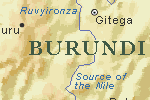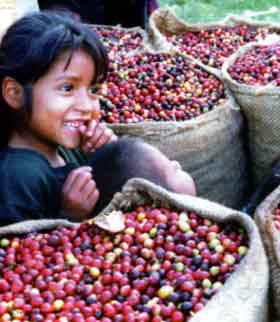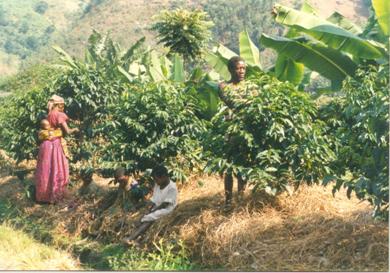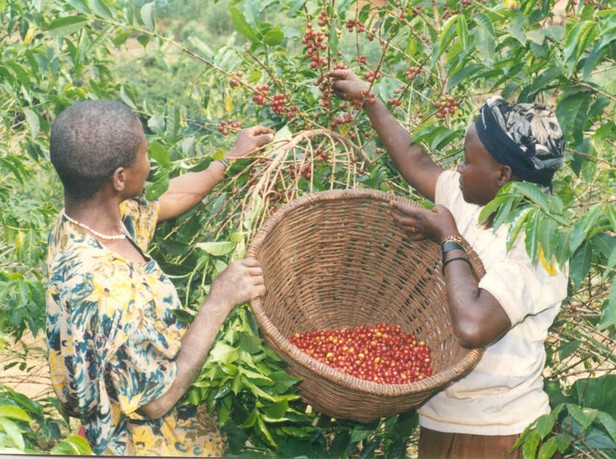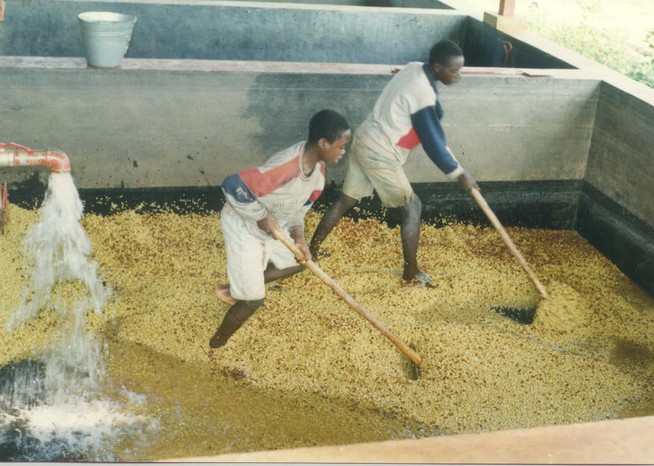Main menu:
Burundi
Introduction |
|||
Flag: |
|
||
Card: |
|||
Background: |
Between 1993 and 2000, wide-spread, often intense ethnic violence between Hutu and Tutsi factions in Burundi created hundreds of thousands of refugees and left tens of thousands dead. Although some refugees have returned from neighboring countries, continued ethnic strife has forced many others to flee. Burundian troops, seeking to secure their borders, have intervened in the conflict in the Democratic Republic of the Congo. |
||
Geography |
|||
Location: |
Central Africa, east of Democratic Republic of the Congo |
||
Coordinates: |
3° 30' S, 30° 00' E |
||
Map references: |
Africa |
||
Area: |
total: 27,830 sq km |
||
Coastline: |
0 km (landlocked) |
||
Maritime claims: |
none (landlocked) |
||
Climate: |
equatorial; high plateau with considerable altitude variation (772 m to 2,670 m above sea level); average annual temperature varies with altitude from 23 to 17 degrees centigrade but is generally moderate as the average altitude is about 1,700 m; average annual rainfall is about 150 cm; wet seasons from February to May and September to November, and dry seasons from June to August and December to January Terrain: hilly and mountainous, dropping to a plateau in east, some plains |
||
Elevation extremes: |
lowest point: Lake Tanganyika 772 m |
||
People |
|||
Population: |
6,223,897 |
||
note: |
estimates for this country explicitly take into account the effects of excess mortality due to AIDS; this can result in lower life expectancy, higher infant mortality and death rates, lower population and growth rates, and changes in the distribution of population by age and sex than would otherwise be expected (July 2001 est.) |
||
Nationality: |
noun: Burundian(s) |
||
Ethnic groups: |
Hutu (Bantu) 85%, Tutsi (Hamitic) 14%, Twa (Pygmy) 1%, Europeans 3,000, South Asians 2,000 |
||
Religions: |
Christian 67% (Roman Catholic 62%, Protestant 5%), indigenous beliefs 23%, Muslim 10% |
||
Languages: |
Kirundi (official), French (official), Swahili (along Lake Tanganyika and in the Bujumbura area) |
||
Government |
|||
Country name: |
conventional long form: Republic of Burundi |
||
Government type: |
Republic |
||
Capital: |
Bujumbura |
||
Administrative divisions: |
16 provinces; Bubanza, Bujumbura, Bururi, Cankuzo, Cibitoke, Gitega, Karuzi, Kayanza, Kirundo, Makamba, Muramvya, Muyinga, Mwaro, Ngozi, Rutana, Ruyigi |
||
Independence: |
1 July 1962 (from UN trusteeship under Belgian administration) |
||
National holiday: |
Independence Day, 1 July (1962) |
||
Flag description: |
divided by a white diagonal cross into red panels (top and bottom) and green panels (hoist side and outer side) with a white disk superimposed at the center bearing three red six-pointed stars outlined in green arranged in a triangular design (one star above, two stars below) |
||
Economy |
|||
Economys overview: |
Burundi is a landlocked, resource-poor country with an underdeveloped manufacturing sector. The economy is predominantly agricultural with roughly 90% of the population dependent on subsistence agriculture. Its economic health depends on the coffee crop, which accounts for 80% of foreign exchange earnings. The ability to pay for imports therefore rests largely on the vagaries of the climate and the international coffee market. Since October 1993 the nation has suffered from massive ethnic-based violence which has resulted in the death of perhaps 250,000 persons and the displacement of about 800,000 others. Only one in four children go to school, and one in nine adults has HIV/AIDS. Foods, medicines, and electricity remain in short supply. |
||
Agriculture - products: |
coffee, cotton, tea, corn, sorghum, sweet potatoes, bananas, manioc (tapioca); beef, milk, hides |
||
Exports - commodities: |
coffee, tea, sugar, cotton, hides |
||
Currency: |
Burundifranc (BIF) |
||
Currency code: |
BIF |
||
Transports: |
Truck land transport |
||
Waterways: |
See Tanganyika |
||
Ports and harbors: |
Bujumbura |
||
Coffee |
|||
BURUNDI, A Country of Coffee Tradition |
|||
Situated in the heart of Africa, Burundi divides numerous streams and rivers which flow into two major african basins supplying the Congo River and the Nile River. It possesses a tropical climate very convenient to the arabica coffee farming . Hills and mountains separating the waters of the two mentioned rivers constitute indeed an ideal environment for the cultivation of the arabica mild coffee.
The cultivation of the coffee was introduced in Burundi since 1930 via Belgium, the colonial power at that time. |
|||
Growing-areas: |
Ngozi, Moyinga, Gutega |
||
Qualities: |
Arabica: fully washed and washed classified as per screensize |
||
Robusta: |
natural |
||
Altitude: |
Arabica: abt. 1.500 to 2000 Meter |
||
Harvest: |
Arabica from May to August |
||
Shippingperiod: |
from June to April |
||
Port of Export: |
Mombasa or Dar-es-Salaam |
||
Shipment: |
In container in bags or bulk |
||
Production: |
ard. 650.000 bags (abt. 70 % Arabica) |
||
Export figures: |
abt. 450.000 bags |
||
Special remarks: |
landlocked country Member of the ACP States belonging to PMA |
||
Summery: |
Coffee from Burundi is milder than Kenyas but still has that interesting "wild" note that you find in Zambia, Zimbabwe and Tanzanian coffees. It has good body and great balance in the cup. |
||
Burundi Buyendi AA, FWS (Fully Washed Super grade) |
|||
Region: |
Buyendi, Central Plateau1 |
||
Apperance: |
d/300gr 16-18scr |
||
Notes: |
Burundi has been unavailable for several years in the US while the ethnic problems divided the country. You can read the presence of this coffee as a sign that those problems are reconciled to the point that the small-holder farmers can get their cash crop to market, and hopefully the economic benefit of this will shore up stability. But the most interesting aspect is that the preparation and cup quality of this lot of Burundi is really excellent. It is a milder coffee, not as edgy as an abided Kenya, but with great balance. And yet it has that distinctive "wild" note in the finish to keep the cup character interesting ... a similar flavor as you will find in Zambian and Zimbabwe coffees. It is not a sweet cup, more pungent than fruity, and roasted to a Full City + it has great bittersweet roast tastes without the loss of body (as can happen as some coffees are roasted darker. A very nice cup, an encouraging sign, and a hope that we see this nice coffee with the 2002/3 crop too! |
||
Roast: |
I like this with a darker roast on it as it maintains the body, but develops some nice pungency and bittersweetness. |
||
Compare to: |
A Kenyan with much less refinement. |
||
Classifications |
|||
Klassifizierung: |
Methode: |
Grösse: |
Defekte: |
Fully washed AAA |
wet processed, |
90% over scr 16.5 |
occasionally |
Fully washed AA |
wet processed, |
85% over scr. 15 |
rare |
Fully washed A |
wet processed, |
medium to small |
some |
Washed A |
wet processed, |
Not very uniform in size |
numerous |
ORGANIZATION OF COFFEE SECTOR IN BURUNDI It is the category of persons who take charge of the farming, the maintenance, the crop and the sale of the cherry or the parchment to the processing industry. They benefit from the technical assistance of the State services .
These are responsible for the purchase of cherries, they pulp and wash them in order to obtain the parchment completely washed known as "Fully Washed parchment".
The part of the coffee processed by the farmers themselves gives the semi-washed parchment quality coffee. This one is collected by the Private until to the Milling factories .
The Board is the industry co-ordinating and policy making body . The main mission is to coordinate the coffee sector in Burundi, to promote and elaborate the coffee quality standards together with the all stakeholders.
The purchase during bids and the export of the coffee are made by every person who makes the demand of it and who fills conditions required to be an exporter. All the persons who export ceffee are members of ABEC. The members of the ABEC are bound by the bids regulation elaborated in conjunction with with the OCIBU, the owners of the coffee and the Exporters. |
|||









